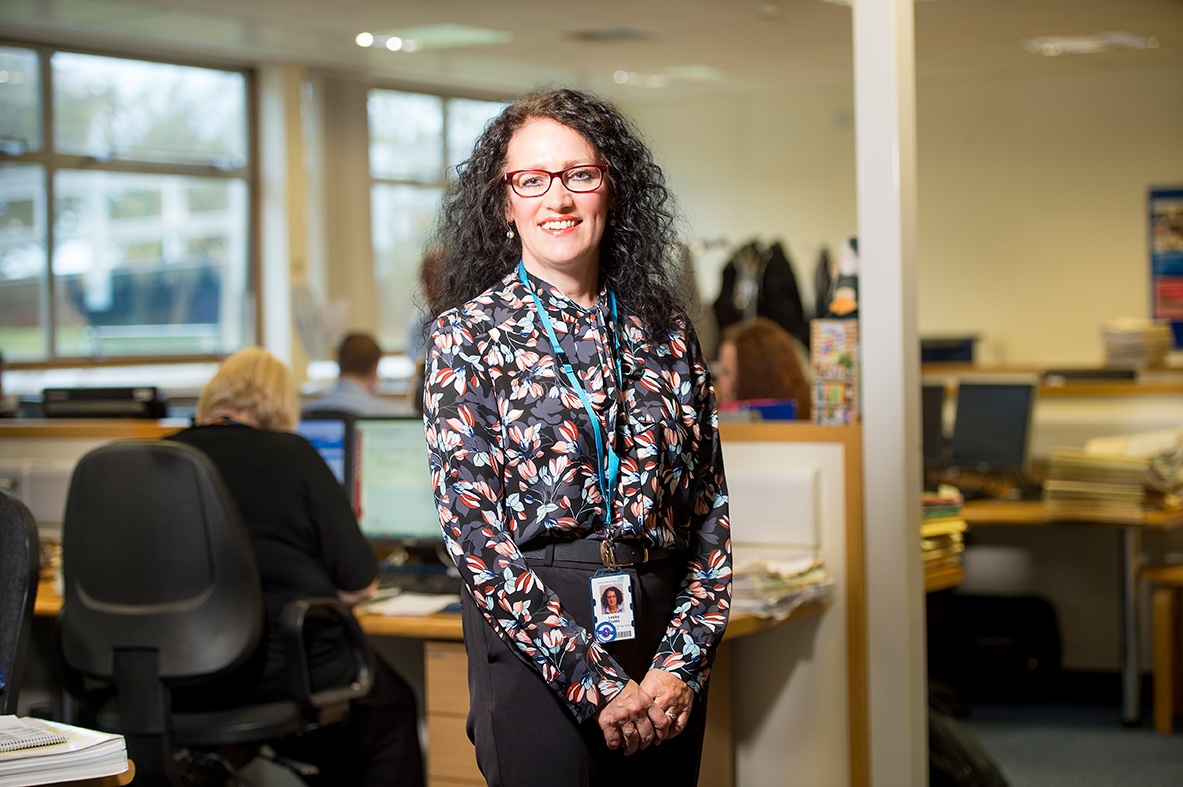Case studies
Lesley | Clinical Coding Team Manager/Specialist
Clinical Coding
"No two days are the same in my job and I gain a great sense of job satisfaction knowing that I am contributing to a brilliant service that this Trust provides for its patients."
What does the job involve?
When a patient is discharged, clinical coders translate the patient’s care into alphanumeric codes.
To do this the coder will first read through the health record of the health encounter and analyse the information to determine – primary diagnosis or main condition treated, relevant comorbidities and all the surgical procedures and treatments the patient has had.
Sometimes the coder may have to contact the responsible consultant to clarify further the information needed to ensure they have the full picture of the admission.
My role as clinical coding team manager/specialist involves supervising and mentoring the clinical coders and trainees.
It also includes liaising with clinicians and other healthcare professionals ensuring that we have all the relevant information we need from them to code accurately and providing clear, up-to-date data for them.
Clinical coding is a specialised skill that requires knowledge of medical terminology, anatomy, physiology, disease processes and analytical skills.
The data produced is an integral part of health information management and is used for a variety of reasons – finance and reimbursement of cost of patient care, clinical research and audits, case mix management, statistics, epidemiological studies, health service planning, education – and many more.
What you love about your job?
Newcastle Hospitals is a large Trust which provides healthcare in many specialities. The surgeons and clinicians in this Trust do a lot of pioneering work that has not been done anywhere in the world.
This makes my role very interesting when I am coding the work. No two days are the same in my job and I gain a great sense of job satisfaction knowing that I am contributing to a brilliant service that this Trust provides for its patients.
Successfully becoming a Clinical Coding Team Manager/Specialist . It took a lot of hard work to get here, but it was well worth it.
Any tips for finding a job that you love?
I think a job is what you make it. If you do your best in your work, take responsibility for your work and take a real interest in what you do – you will gain good job satisfaction. Then your job will be the job you love.
Tell us about any unusual aspects of the job
From time to time our department has arranged visits to medical departments around the Trust to see the work they do there. For example to understand the work I was coding for cardiology I visited the cardiology catheter lab .
I was able to watch as the medical staff there carried out certain procedures on patients which was really interesting and gave me a good insight into their work.
What are your usual working hours?
My hours are 8.00am until 4.00pm with half hour for lunch. We have flexible working hours so our start time and end time are flexible but we must work 7.5 hours per day.
What training is needed for your job?
When you start the job you must attend a Coding Standards Course. After a couple of years gaining experience in the job you are required to study for and pass 2 exams (theory and practical exams) to become a fully qualified ACC clinical coder.
Every 3 years after becoming qualified must attend and pass a Refresher Course to remain ACC qualified. As the medical world is forever progressing it is necessary to receive ongoing training and mentoring while working in the job.
Why should someone come and work in your department?
Clinical Coding these days is a career . There is clear pathway of development and training leading to a recognised qualification.
Once qualified there are many directions you can take in the world of coding, eg clinical coding trainer, clinical coding auditor, clinical coding team manager/specialist etc.
I work with a great team of coding assistants, trainees, coders and managers. We all work together well and support each other.


